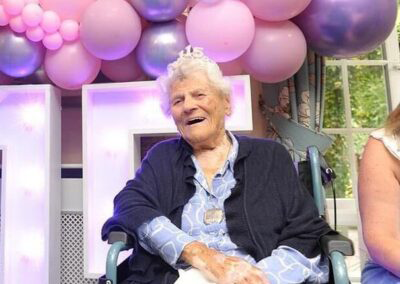What is Aerobic Exercise?
Aerobic exercise, often called ‘cardio,’ is a term referring to activities that raise your heart rate and keep it elevated for an extended period of time. This form of exercise targets the cardiovascular system – the heart and the blood vessels. Common forms of aerobic exercise include running, swimming, cycling, and brisk walking, though activities like dancing, jumping rope, and even yard work can count. Essentially, if it gets your heart pumping faster and you’re using large muscle groups repetitively and rhythmically, then it’s likely a form of aerobic exercise.
What are the Benefits of Aerobic Exercise?
The perks of regular aerobic exercise extend far beyond weight management, though it’s a noted benefit. Cardio boosts the heart’s efficiency, enabling it to pump more blood and deliver oxygen more effectively to tissues. Moreover, it aids in lowering LDL cholesterol commonly referred to as “bad” cholesterol) and increases beneficial HDL cholesterol, contributing to better blood flow in arteries. Cardio also plays a role in regulating blood sugar levels, reducing the risk of type 2 diabetes. Not to mention, its potential impact on mental health, aiding in the reduction of anxiety, depression, and stress by releasing mood-boosting endorphins.
Aerobic Exercise and Heart Health
The heart grows stronger and more efficient with regular aerobic exercise. As a result, it’s better equipped to effectively pump blood throughout the body, which reduces the risk of heart disease, the leading cause of death worldwide. Cardio workouts reduce several cardiovascular risk factors, including high blood pressure and artery inflammation. Moreover, by fostering weight loss and combating obesity, another significant risk factor, aerobic exercise further ensures a healthier heart.
Aerobic Exercise and Aging
As we age, our body naturally experiences declines in muscle mass, bone density, and metabolic rates. However, aerobic exercise can act as a potent antidote. Engaging in regular cardio can maintain and even improve lung capacity, regardless of age. It also keeps joints mobile and healthy, reducing the risk of osteoporosis. Furthermore, regular aerobic activity can delay the onset of cognitive decline, aiding in the prevention of ailments like Alzheimer’s. Essentially, cardio isn’t just a tool to add years to your life, but to add life to your years.
What are the Current Guidelines Regarding How Often to Do Aerobic Exercise?
While individual fitness goals can change how often and how intensely you should engage in aerobic activity, The American Heart Association recommends at least 150 minutes of moderate aerobic activity throughout the week, or 75 minutes of intense activity, or some combination of the two. While this may sound daunting, but keep in mind you don’t have to complete your cardio all in one session. In fact, cardio workouts can be broken down into sessions as short as 10 minutes. Children and adolescents, on the other hand, should aim for at least 60 minutes of moderate to high-intensity aerobic activity every day.
Conclusion
At this point, the many, many benefits of aerobic exercise should be clear; from bolstering heart health to ensuring a higher quality of life into your later years. As an integral component of a balanced fitness regimen, it offers both physiological and psychological benefits that are hard to overlook. While today’s fast-paced world often seeks quick fixes, aerobic exercise remains an enduring (pun intended), proven way to maintain optimal health.
References
- Aerobic Exercise. American Academy of Orthopaedic Surgeons. December 2019. Accessed October 25, 2023. https://orthoinfo.aaos.org/en/staying-healthy/aerobic-exercise/
- American Heart Association. American Heart Association Recommendations for Physical Activity in Adults and Kids (https://www.heart.org/en/healthy-living/fitness/fitness-basics/aha-recs-for-physical-activity-in-adults). Last reviewed 8/18/2018. Accessed 8/15/2023.
- Azad A, Gharakhanlou R, Niknam A, Ghanbari A. Effects of aerobic exercise on lung function in overweight and obese students. Tanaffos. 2011;10(3):24-31.
- Burtscher J, Millet GP, Gatterer H, Vonbank K, Burtscher M. Does Regular Physical Activity Mitigate the Age-Associated Decline in Pulmonary Function?. Sports Med. 2022;52(5):963-970. doi:10.1007/s40279-022-01652-9
- Exercising to relax. Harvard Medical School. July 7, 2020. Accessed October 25, 2023. https://www.health.harvard.edu/staying-healthy/exercising-to-relax#:~:text=The%20mental%20benefits%20of%20aerobic,natural%20painkillers%20and%20mood%20elevators.
- Gilani SRM, Feizabad AK. The effects of aerobic exercise training on mental health and self-esteem of type 2 diabetes mellitus patients. Health Psychol Res. 2019;7(1):6576. Published 2019 Mar 11. doi:10.4081/hpr.2019.6576
- Patel H, Alkhawam H, Madanieh R, Shah N, Kosmas CE, Vittorio TJ. Aerobic vs anaerobic exercise training effects on the cardiovascular system. World J Cardiol. 2017;9(2):134-138. doi:10.4330/wjc.v9.i2.134
- Physical Activity. Centers for Disease Control and Prevention. May 20, 2022. Accessed October 15, 2023. https://www.cdc.gov/physicalactivity/index.html
- The top 10 causes of death. World Health rganization. December 9, 2020. Accessed October 26, 2023. https://www.who.int/news-room/fact-sheets/detail/the-top-10-causes-of-death
- Xu L, Gu H, Cai X, et al. The Effects of Exercise for Cognitive Function in Older Adults: A Systematic Review and Meta-Analysis of Randomized Controlled Trials. Int J Environ Res Public Health. 2023;20(2):1088. Published 2023 Jan 7. doi:10.3390/ijerph20021088











